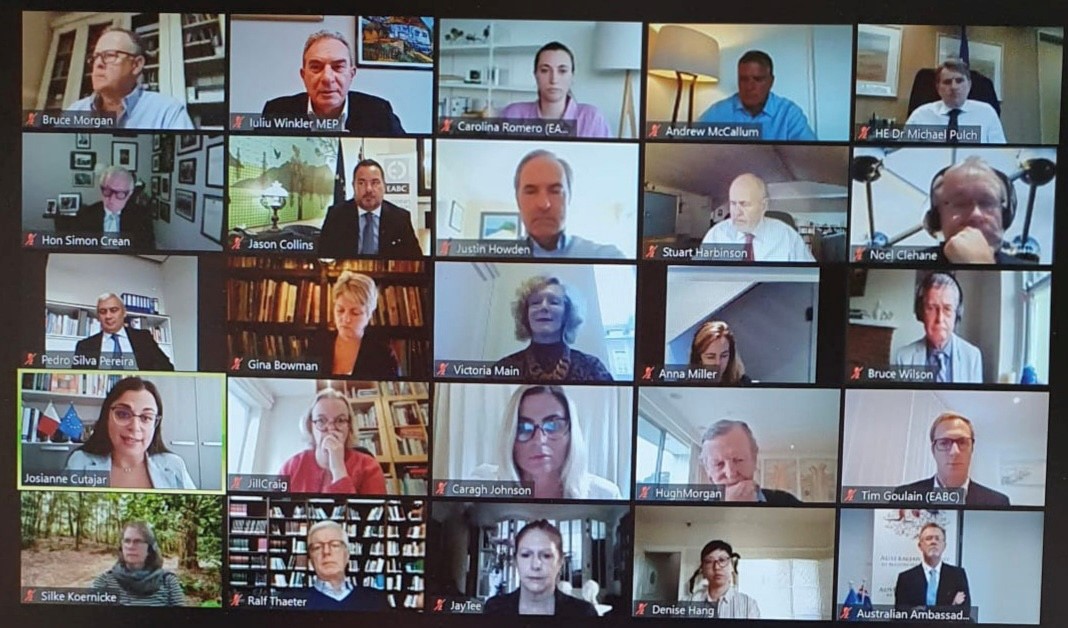We are currently in the middle of the EU Trade Policy Review. After the reshuffling of portfolios in the Commission, and the assumption of duties by Executive Vice President V. Dombrovskis, the public consultation linked to the TPR has been prolonged until 15 November. A new Trade Policy paper from DG Trade is expected to arrive in early 2021. This comes to update the Trade for All strategy, released under Commissioner Malmström in early 2015.
Many ask me about the implications of the Trade Policy Review. First, let me make clear what won’t change, our commitment to fair, free and open trade. We remain strong supporters, now more than ever, of the rules-based multilateral trading system and a well-functioning and efficient World Trade Organisation. We will continue pursuing our value-based trade agenda, working on predictable and clear legal frameworks that contribute to business competitiveness and support innovation.
Now, what will change, also in light of some of the trade-related vulnerabilities highlighted by the COVID19 pandemic? The EU will focus more on securing the resilience of its supply chains. Through Open Strategic Autonomy, we aim to find the right strategic balance between stockpiling and re-shoring of production, between a new trade strategy and a new industrial strategy. We pursue a diversification of our supply chains, in order to reduce detrimental dependencies in key sectors. Furthermore, I want to stress that there are increased EU sensitivities, as witnessed in INTA as well, on Trade and Sustainable Development (TSD). This implies closer attention to human rights, climate change policies and labour conditions in our trade negotiations.
When it comes to the role of the European Parliament, as you well know, we are not involved in the negotiations of trade deals. Nonetheless, we play a crucial role in ratification under the consent procedure. This means that the EP input is vital during the negotiations; DG Trade and the relevant team of negotiators frequently consult with INTA, aiming to coordinate early on, in order to secure a smooth consent procedure when the time comes.
On EU-UK relations, I want to highlight the high degree of uncertainty still present. Brexit bears its implications, and we witness the pace of the ongoing negotiations; clearly, our trade agenda and priorities have been influenced by this, with some delays also affecting the EU-Australia agenda. Independent of its impact, I stress that the EU will remain the same champion of open, free and fair trade as before, carrying the same benefits of the huge single market and the strong regulatory frameworks for all our trade and investment partners.
Coming to our bilateral agenda, I reaffirm that Australia ranked as the 21st largest trade in goods partner of the EU, while the EU represented Australia’s third largest trading partner after China and Japan in 2019. I was indeed happy to see that in spite of difficulties linked to the public health situation, the negotiation process is ongoing. I commend the Australian Government for their commitment to the negotiations and for facilitating some 65 videoconferences on sectorial discussions during the eighth negotiation round last month (14-25 September).
Given our like-mindedness, progress is good! Still, some of the most difficult areas in this negotiation include agricultural market access and protection of GIs, procurement, the TSD chapter, IPR and Services. I hope that in 2021 we will see the conclusion of negotiations and I assure you of my convinced support in the process of ratification in the European Parliament.
With all the changes and volatility currently underway, I want to reaffirm our commitment to remain in a pragmatic and realistic realm of policymaking. I subscribe to the thinking that we cannot place all the world’s problems on trade policy. I will continue my constructive engagement to foster fruitful trade and investment relations with our partners, and I certainly consider you a very close likeminded partner for the 21st century.
INTA Vice-Chair, MEP Iuliu Winkler’s remarks at the Australia – EU Business Round Table held on 14 October 2020.








